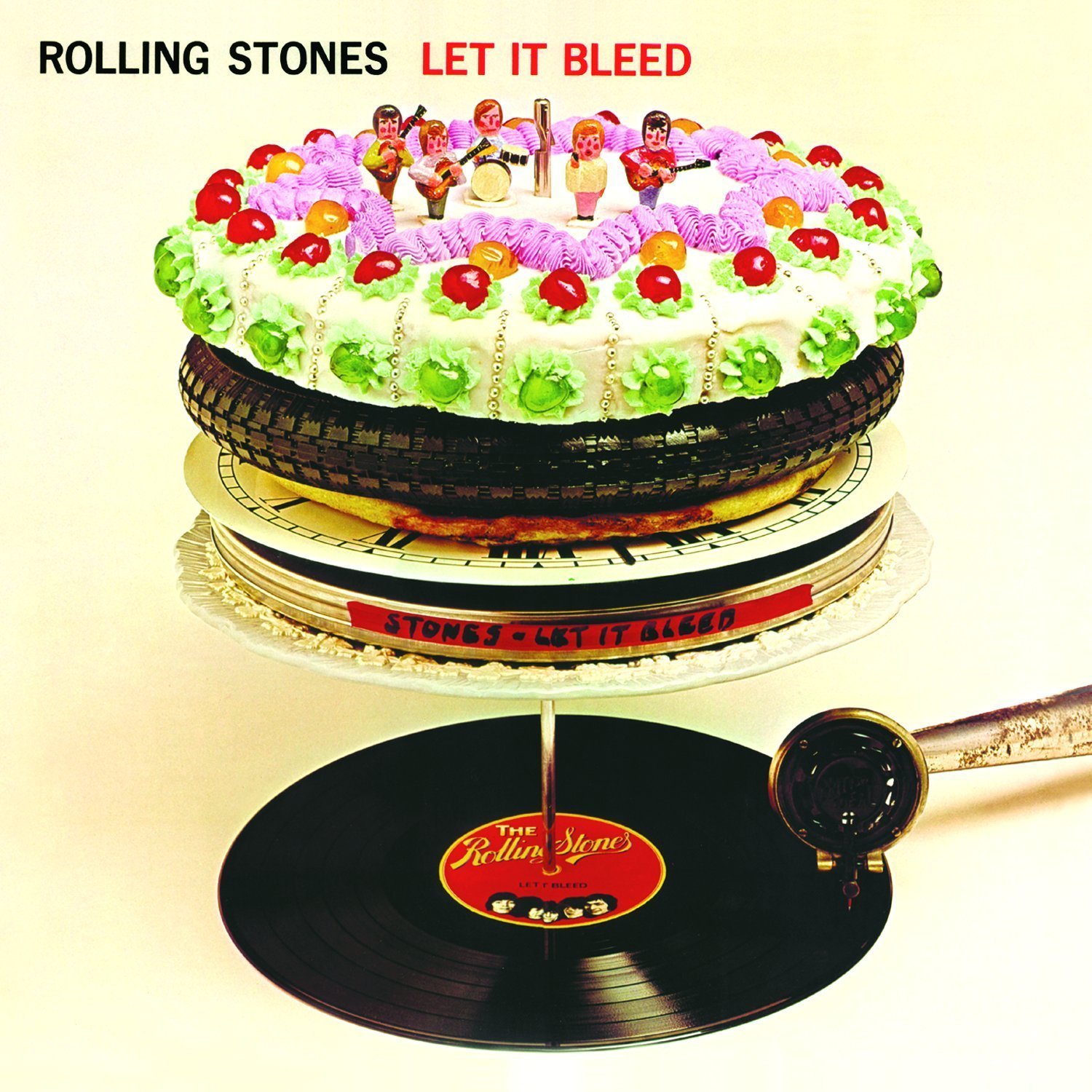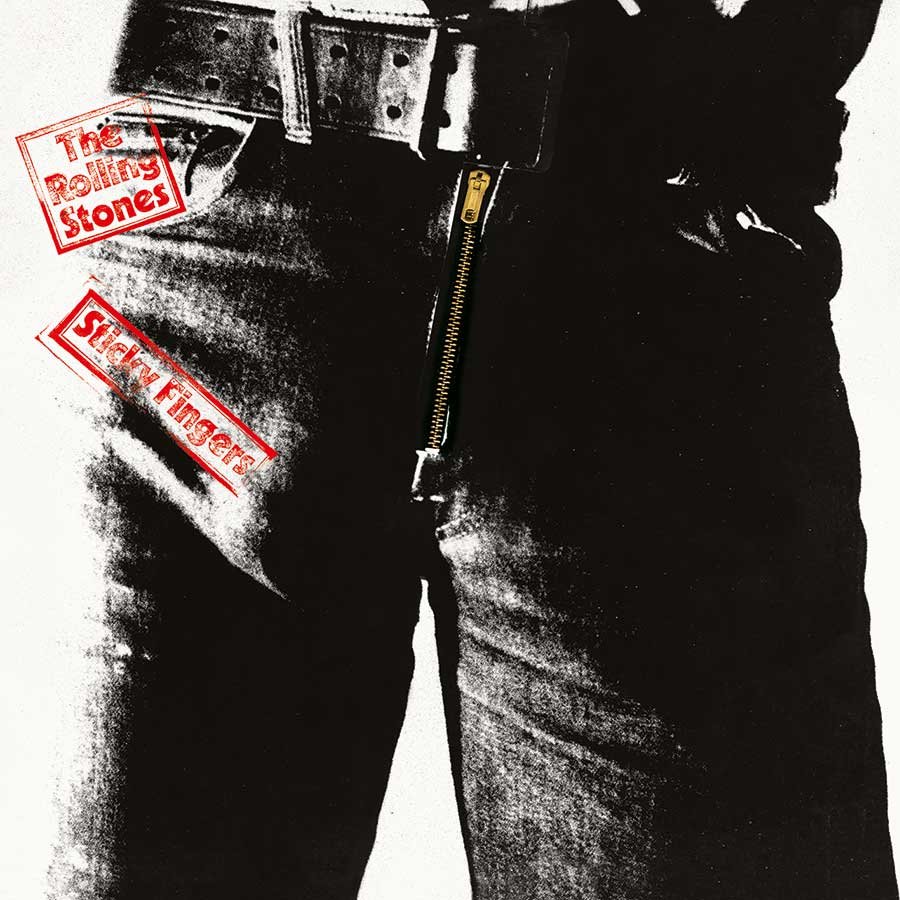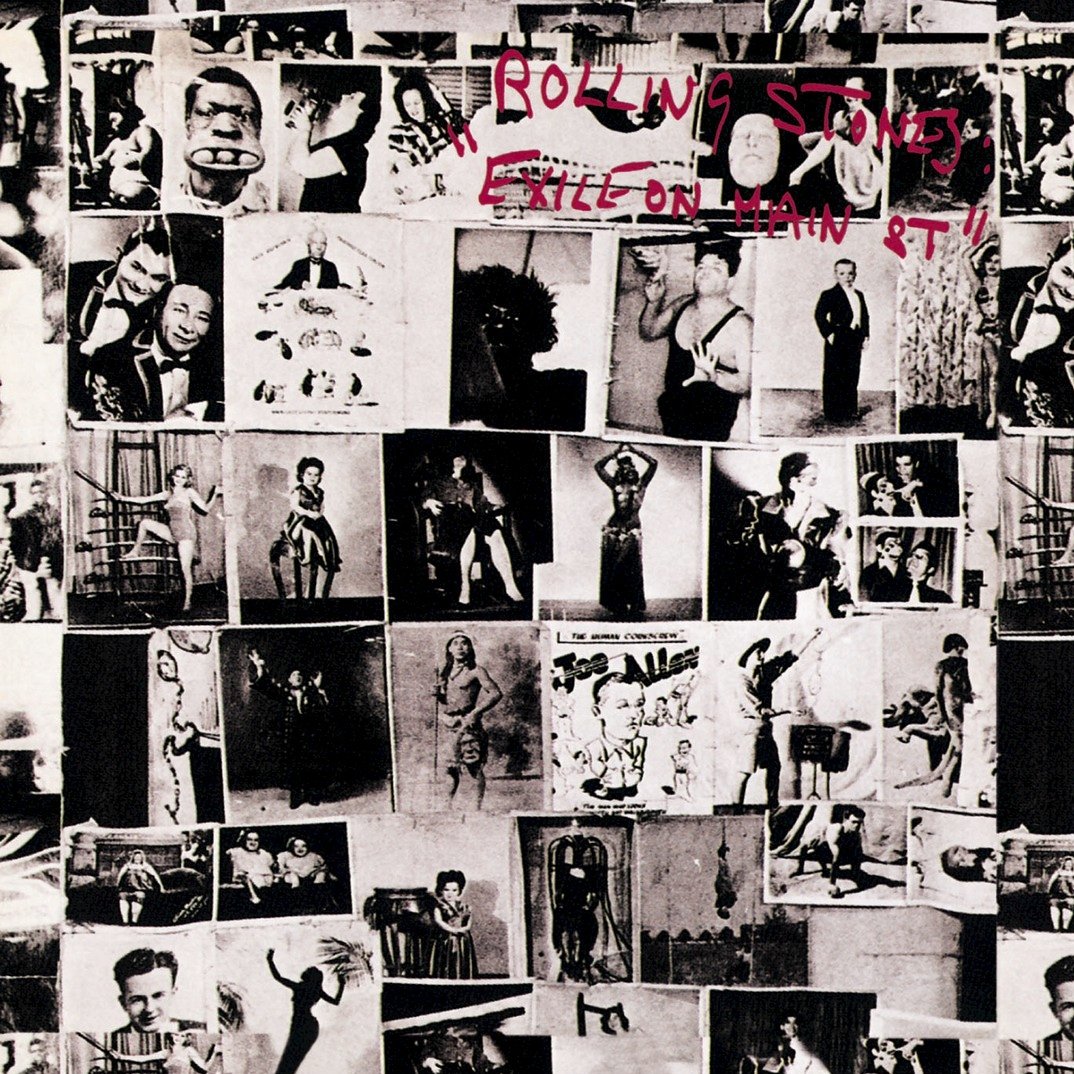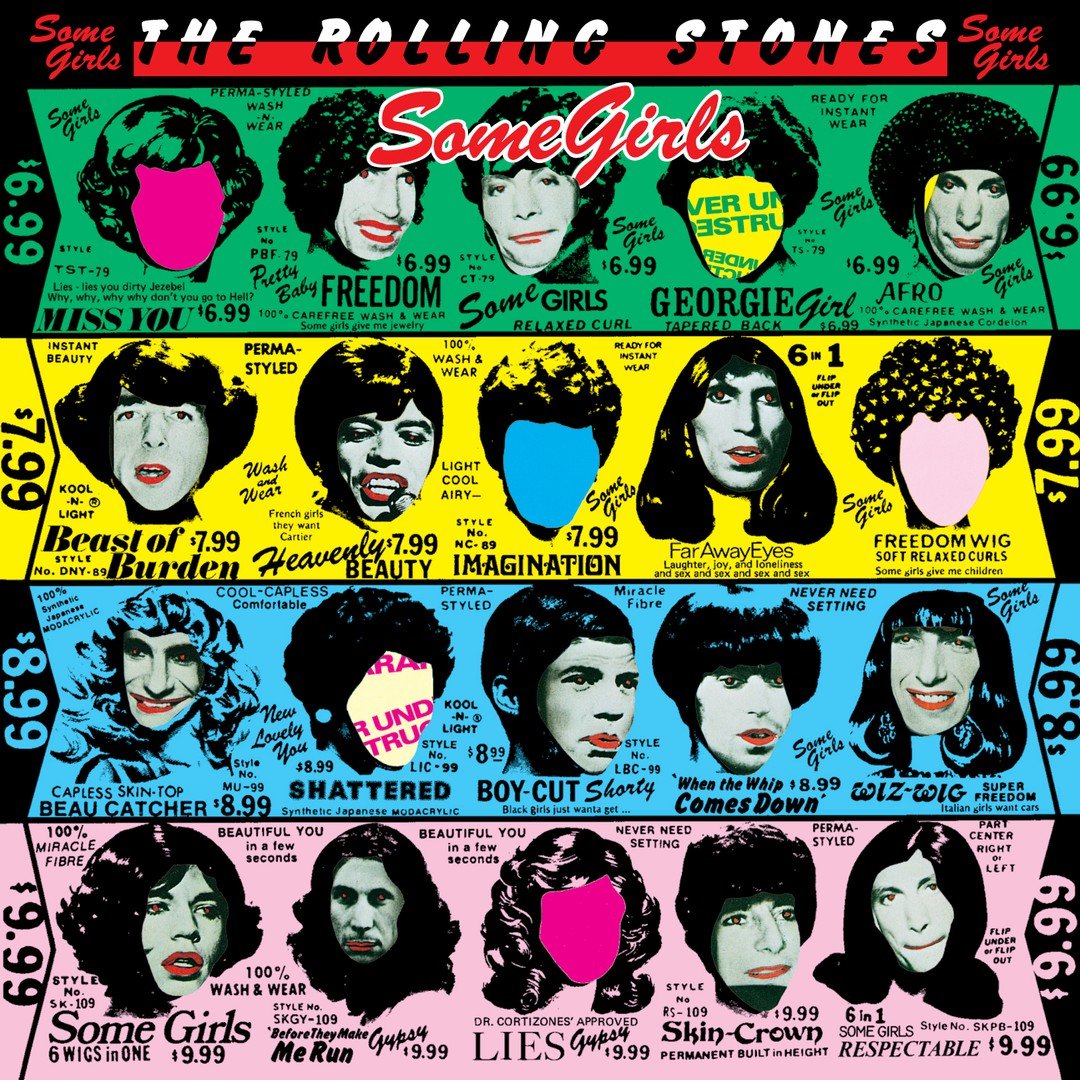Happy 55th Anniversary to The Rolling Stones’ seventh British (and ninth American) studio album Beggars Banquet, originally released December 6, 1968.
Even one of the greatest rock bands in history can make a misstep. The Rolling Stones found themselves in this position in 1968, reeling after creating an album mired in excesses that wasn’t true to the group’s soul. But they made an effort to recapture the core of what made them great, while still breaking new musical ground. Beggars Banquet, released 55 years ago, is the result of this effort, and it blew the doors off the place. One of the best rock albums ever made, the project remains one of the cornerstones of their legend and status as one of the greatest groups to ever rock.
For the crew of Mick Jagger, Keith Richards, Brian Jones, Bill Wyman, and Charlie Watts, Beggars Banquet is arguably their strongest album. It was their ninth album released in the United States, and their seventh released in England, which means that the group had enough time to establish themselves, get bored, and then reclaim their identity. Beggars Banquet is a product of the time period during which it was recorded, but more than a half-century later, it still sounds timeless.
Beggars Banquet was the prototypical “back to basics” album that follows up another album where the band loses their way, often due to drenching themselves in excess. In the Stones’ case, they “lost their way” with Their Satanic Majesties Request, the group’s middling attempt to create a psychedelic “concept” album in the mold of Sgt. Pepper’s Lonely Hearts Club Band. The album was a modest hit, but was not well received critically at the time, and it’s an artistic mixed bag. Aside from “She’s a Rainbow” and “2,000 Light Years From Home,” the album is a mess. It’s simultaneously over-cooked and yet under-produced; it was the group’s first self-produced project, and they lacked the initiative and sobriety to tell themselves “no.” Members of the band have since shunned it, saying it was the product of too many drugs, too much experimentation, and no one to reign them in.
Beggars Banquet became the Stones’ attempt to reconnect with their roots. The vast majority of the album is decidedly blue collar, with the group repurposing blues riffs and styles and making them conform to the Stones’ style. However, the album features not only two of the Stones’ best and most beloved songs, but also two of the best and most beloved Rock songs in history.
Beggars Banquet’s release was delayed for six months due to the album’s cover art. The original artwork pictured the top half of a dilapidated toilet in a bathroom located in a Southern California Porsche dealership, the walls of the stall adorned with the scrawls of Jagger and Richards. Apparently, representatives from the Stones’ label found the sight of the toilet offensive and they refused to distribute the album with that version of the cover.
The fact that the cover was a source of such controversy now seems bizarre. It’s hard to believe that a photo of the top half of toilet would be considered grounds for shelving the album, considering what was going on in the world in 1968. Eventually, the band and the label settled on a new cover, resembling a wedding invitation. And regardless, the album’s two biggest hits were pretty controversial in their own right.
Listen to the Album:
“Sympathy For the Devil,” Beggars Banquet’s best-known song and one of the pinnacles of the Stones’ career, leads off the album. It’s one of the Stones most expertly composed songs, opening with percussionists Rocky Dzidzornu on congas, piano-playing by session musician Nicky Hopkins, and brief shouts by Jagger. The song continues to build through its backing vocals and Jagger’s memorable lyrics. Speaking from the perspective of the Devil, Jagger notes his presence during history’s atrocities. It’s easy to forget the Richards doesn’t appear on the song until a little past its halfway point, but his solo is fittingly masterful.
The song drew a lot of negative attention from religious groups, who argued that the group was glorifying the Devil. I assume these groups never actually listened to the song, considering that the song is about humanity’s capacity for evil, and that people do a pretty good job at being awful to each other without the influence of Lucifer. Still, these groups, apparently unable to understand metaphors, believed the group was using the song to try to lure children towards Devil worship.
The album’s other towering anthem, “Street Fighting Man,” was also the source of controversy. Anyone who’s picked up a history book knows that 1968 was a tumultuous time for citizens of the world. The globe was gripped with civil unrest, with prominent leaders being assassinated, the streets filled with young people protesting unjust wars and civil injustices. With “Street Fighting Man,” Jagger takes the perspective of one of these young men, fed up with half measures, advocating for armed revolution against the corrupt government system. The powerful summer rock anthem was apparently inspired by the experiences of radical activist Tariq Ali at a London protest against the Vietnam War. In an interview with Jann Wenner for Rolling Stone in 1995, Jagger revealed that the song was also inspired by the massive May 1968 protests and riots in the Left Bank of Paris.
“Street Fighting Man” surges with energy and power, densely packed with layers of instrumentation. Jagger’s distorted vocals are accompanied by Richards’ swelling guitar solo, along with Jones’ distinctive playing of the Sitar and the tambura. By all accounts, Jones’ behavior was erratic throughout the recording of Beggars Banquet, mostly due to his substance abuse issues. But when he was present, his contributions were essential to the album’s artistic success.
To round out the song’s eastern influences, Dave Mason, a former member of Traffic and a noted session musician, plays the shenai. The Stones had never been a particularly political group, but here Jagger bellows a call to action, singing that “I think the time is right for a Palace Revolution / But where I live the game to play is Compromise Solution!” And there are still few rock lyrics as perfect as “What is a poor boy to do except join a Rock N’ Roll band?” As a seething screed calling for violent action, the song cut a little close to the bone for some in the United States as the Vietnam War raged on and was apparently banned in some radio markets.
Beyond the two singles, the Stones spend much of Beggars Banquet honoring their Blues influences. “No Expectations” is one of their more quietly beautiful songs, a slow, acoustic, and at times subtle meditation on heartbreak. The song is anchored by Jones’ exquisite performance on acoustic slide guitar, one of Jones’ final contributions to the group. Beggars Banquet was the last full album he recorded with the Stones before his death; he appeared on a few songs on Let It Bleed (1969), which was released after he drowned.
Enjoying this article? Click/tap on the album covers to explore more about The Rolling Stones:
Other songs on Beggars Banquet are steeped in Blues traditions. “Prodigal Son” is a straightforward cover of a Reverend Robert Wilkens song, appropriately filled with Biblical imagery as Jagger deepens his vocal tone, accompanied by Richards on guitar and Jones on harmonica. “Parachute Woman” is a ribald Blues song, loaded with extremely unsubtle sexual innuendo. Dirty Blues songs are a staple in the genre, and with “Parachute Woman,” the Stones follow in the footsteps of Willie Dixon’s “Back Door Man” or Muddy Waters’ “Bus Driver.” In fact, Jagger’s requests for the titular woman to “land on me tonight” or “blow me out” are relatively tame in comparison.
Occasionally the Stones’ penchant for sexual innuendo crosses the line beyond just poor taste, even for them. For all the controversy that Beggars Banquet generated for photos of toilets and accusations of Devil worship, other controversial songs flew under the radar. “Stray Cat Blues” sports a solid Blues Rock groove and a crowded wall of sound that almost overshadows the grossness of the lyrics. Almost. Throughout the song, Jagger attempts to cajole a 15-year-old girl into having sex with him, insisting that while he’s aware of her age, “it's no hanging matter, it's no capital crime.” He even goes as far as suggesting that she bring along her 15-year-old friend for a threesome. Seriously, there’s no way that this song would have been released 20 years ago, much less today.
Beggars Banquet also has a few heavily country & western influenced tracks, utilizing the sound, sentiment, and occasionally humor often found in the genre. “Factory Girl,” with its fiddle accompaniment, follows the tried-and-true country trope of expressing love for working-class women. Meanwhile, “Dear Doctor” is a humorous ballad where Jagger assumes the role of a groom on the not-so-joyous morning of his wedding day. He wails how his mother has to make sure he’s well and soused before heading to the altar to marry a “bow-legged sow.” In the end, he’s “saved” after discovering his bride-to-be has run off to Virginia with his cousin.
The album comes to a close with “Salt of the Earth,” the Stones’ dedication to the working class. The song opens with a verse by Keith Richards, who had rarely sung lead vocals for the group at that point. The Rolling Stones are refreshingly honest in their reverence towards the “common foot soldier.” They’re genuine in their admiration for those “humble of birth,” but they also acknowledge that they, as rock idols, don’t share a lot in common with the “rag taggy people.” The group recognizes the sacrifices made by the “lowly of birth” without trivializing their pain, but attempting to draw a false parallel with their travails as musicians. The song ends with a rousing chorus by the Watts Street Gospel Choir and a piano solo by Hopkins. The use of a full-on gospel choir makes this song a prelude of sorts to “You Can’t Always Get Want You Want,” another of their most iconic songs.
The Stones followed up Beggars Banquet by closing out the ’60s and opening the ’70s on an extremely high note, following it up with Let It Bleed, Sticky Fingers (1971), the live Get Yer Ya-Ya’s Out, and Exile On Main Street (1972), all included among the true jewels in their discography. And while each is a unique entity, during this period the Stones stuck with the ethos of using their blues rock roots as their foundation.
The Stones would go on to make other missteps throughout their career, but these later entries can be seen as the cost of doing business when a group starts getting long in the tooth. Time has made these lesser releases fall away in perspective, and albums like Beggars Banquet remain to define the group’s legacy.
LISTEN:
Editor's note: this anniversary tribute was originally published in 2018 and has since been edited for accuracy and timeliness.





